- Home
- /
- Vitamins etc.
- /
- Vitamins
- /
- Vitamins and Healthy Eating
- /
- Vitamins and Healthy Eating:...
In the realm of healthy eating and nutrition, vitamins have long been regarded as the silent influencers, orchestrating the biochemical reactions within our bodies. These micronutrients, each with its unique capabilities, wield the power to shape our overall well-being. As we embark on this journey through the A-Z of vitamins, we set out to unravel the mysteries behind their functions, sources, and the profound impact they have on our physical and mental health.
Join us as we delve into the enchanting world of vitamins, exploring their roles as coenzymes, antioxidants, and even hormone-like messengers. From vitamin A, the visionary nutrient for healthy eyesight and immune support, to vitamin D, the sun vitamin essential for strong bones and immune function, each vitamin we encounter offers a glimpse into the intricacies of human biology.
Beyond the surface, we’ll also address common myths and misconceptions surrounding vitamins, enriching ourselves with knowledge to make informed decisions about our nutritional choices. While vitamins hold incredible potential for our well-being, it is essential to strike a balance between sufficiency and excess, fostering a holistic approach to health and nutrition.
So, let us embark on this enlightening journey together, unlocking the secrets of these nutritional wonders and discovering the transformative power of vitamins. As we unravel the complexities, we unveil the path to nourishing our bodies and minds, cultivating a lifestyle that embraces the gifts of nature and the science behind nutrition.
What Vitamins exist?
In the world of health and nutrition, vitamins have always been the unsung heroes. These micronutrients are crucial for our body’s right functioning and have a vital significance in supporting general well-being. From maintaning the immune system to aiding in energy production and enhancing cognitive function, vitamins are the nutritional powerhouses that we cannot afford to overlook.
1. Vitamin A: The Vision Nutrient
Vitamin A, known for its function of promoting healthy vision, is essential for supporting healthy skin, bones, and the immune system. There are its two forms – preformed vitamin A (retinoids) found in animal products and provitamin A carotenoids (e.g., beta-carotene) found in plants. Comprehension the distinction between the two and their sources helps us harness their benefits.
2. Vitamin C: The Immune Booster
Widely recognized for its immune-boosting characterictics, vitamin C is a potent antioxidant that contributes to defent our cells from damage. We know the various sources of this vitamin and its role in collagen synthesis, wound healing, and immune function.
3. Vitamin D: The Sun Vitamin
Vitamin D is unique as our body can produce it through sun exposure. We uncover the importance of vitamin D in maintaining bone health, immune function, and its potential link to mood regulation.
4. Vitamin E: The Protector
As a powerful antioxidant, vitamin E has a important significance in guard our cells from oxidative stress. We explore its skin benefits, cardiovascular support, and its presence in various plant-based oils and nuts.
5. Vitamin K: The Blood Clotting
Vitamin K is crucial for blood clotting and bone health. It plays a role in preventing excessive bleeding and its two forms, K1 and K2, found in different food sources.
6. Vitamin Biotin: The Beauty Vitamin
Biotin, also known as vitamin B7, is often celebrated for its role in promoting healthy hair, skin, and nails. It has significance in metabolism and its presence in various foods.
7. Folate (Vitamin B9): The Pregnancy Superstar
Folate is critical during pregnancy for right fetal regulation and is essential for overall cell division and growth, but is makes difference for non pregnant also
8. Vitamin Niacin (B3): The Cholesterol Modulator
Niacin, or vitamin B3, is known for its function of cholesterol management and its potential impact on cardiovascular health.
9. Vitamin Riboflavin (B2): The Energy Unleasher
Riboflavin is engaged in energy output and has a crucial significance in supporting healthy skin and vision. It has important significance in metabolism.
10. Pantothenic Acid (Vitamin B5): The Stress Buster
Pantothenic acid, or vitamin B5, is basic for the production of stress hormones and assists in various metabolic processes. It also has its role in skin health.
11. Pyridoxine (Vitamin B6): The Mood Regulator
Vitamin B6 is engaged in neurotransmitter synthesis, making it crucial for brain health and mood regulation. It is worth to remembering its role in maintaining immune function and its potential therapeutic uses.
12. Cobalamin (Vitamin B12): The Nerve Protector
Vitamin B12 is essential for nerve function and red blood cell making. Its relevance for vegans and vegetarians is hard to overestimate.
Picking the Right Vitamin Supplement
Vitamins are the superheroes our bodies need to function optimally. From A to Z, each vitamin plays a unique and vital role in supporting our health and well-being. Understanding their functions and ensuring we get a balanced intake through a healthy diet can empower us to live a vibrant and healthy life. Remember, vitamins are not just pills in bottles; they are essential nutrients that unlock the true potential of the human body.
Vitamins: the Distinction from Other Elements
Vitamins are a class of organic compounds that are basic for the right functioning of our bodies. What sets vitamins apart from other elements is their unique chemical structure and specific roles in physiological processes. Unlike minerals or macronutrients like proteins, fats, and carbohydrates, vitamins are required in much smaller quantities, measured in micrograms or milligrams. This small dosage, however, does not diminish their significance.
1. Organic Nature
One key aspect that distinguishes vitamins from minerals and other inorganic compounds is their organic nature. Vitamins are composed of carbon atoms and are synthesized by living organisms, whether plants or animals. This organic structure allows them to interact with other biological molecules in intricate ways, enabling them to participate in a wide array of biochemical reactions.
2. Coenzymes and Cofactors
Vitamins often serve as coenzymes or cofactors, which are vital for the correct functioning of enzymes. Enzymes are proteins that act as catalysts, facilitating chemical reactions in our bodies. Coenzymes and cofactors bind to specific enzymes, assisting them in their catalytic activities. For instance, vitamin B3 (niacin) acts as a coenzyme in various cellular processes, aiding in energy production and DNA repair.
3. Water-Solubility vs. Fat-Solubility
Vitamins are categorized into two main groups based on their solubility – water-soluble and fat-soluble. Water-soluble vitamins (e.g., vitamin C and the B vitamins) fuse in water and are not reserved in the body. They need to be regularly replenished through diet since any excess is excreted in urine. In contrast, fat-soluble vitamins (e.g., vitamins A, D, E, and K) are absorbed with dietary fats and can be piled up in the liver and fatty tissues. This storage capacity allows the body to draw upon fat-soluble vitamins during times of deficiency.
4. Essentiality
Vitamins are deemed essential because our bodies cannot synthesize them in sufficient quantities, or in some cases, cannot produce them at all. Hence, we must obtain these vital nutrients through our diet or, in certain cases, through supplements. Each vitamin plays a distinct role in various bodily processes, and a deficiency in any one of them can lead to specific health issues.
5. Wide-ranging Functions
Vitamins exhibit diverse functions, contributing to multiple aspects of health. For example, vitamin D has a crucial significance in calcium merger and bone health, while vitamin C acts as an antioxidant, defencing cells from oxidative damage and maintaining the immune system. Each vitamin is like a piece in a complex puzzle, working together with other nutrients to maintain the delicate balance of our body’s functions.
6. Precursors and Conversion
Some vitamins exist in inactive forms and require conversion within the body to become biologically active. For instance, beta-carotene, a provitamin A carotenoid discovered in fruits and vegetables, is turned into active vitamin A (retinol) by our bodies. This conversion process allows the body to regulate the levels of active vitamins based on its needs.
7. Not Energy Sources
Unlike carbohydrates, fats, and proteins, vitamins themselves do not provide energy when consumed. Instead, they act as facilitators and regulators of energy-producing processes. By supporting enzymatic activities engaged in energy metabolism, vitamins ensure that the energy obtained from food is efficiently utilized by the body.
Vitamin-like substances and why they are not vitamins
Vitamin-like substances, also known as pseudovitamins or quasi-vitamins, are a fascinating group of organic compounds that share similarities with vitamins in their roles and functions within the body. However, they fall short of meeting all the criteria to be classified as true vitamins. Unlike essential vitamins, which must be received through the diet, vitamin-like substances can often be produced by the body or may not be essential for all individuals.
Let’s explore some more examples of vitamin-like substances and why they are not classified as vitamins:
1. Choline
Choline is an basic nutrient that has a crucial significance in different biological processes, including nerve signaling, lipid metabolism, and liver function. It is often grouped with B-complex vitamins due to its functions. While choline is essential during certain life stages, such as pregnancy and infancy, the human body can make small amounts of choline in the liver. This partial endogenous synthesis makes choline a vitamin-like substance rather than a true vitamin.
2. Inositol
Inositol is involved in cell signaling and membrane structure, contributing to cell health and communication. It is sometimes referred to as vitamin B8 because of its chemical structure and functions. However, inositol can be produced by the body from glucose, and it is not considered essential in the diet, which distinguishes it from true vitamins.
3. PABA (Para-Aminobenzoic Acid)
PABA is a precursor to folic acid and was initially thought to be a B-complex vitamin. It was even named vitamin B10 at one point. While PABA is essential for some microorganisms, such as bacteria, it is not considered essential for humans since our bodies can synthesize folic acid from other compounds.
4. Carnitine
Carnitine is a vital factor for the transport of fatty acids into the mitochondria, where they are used for energy production. While carnitine is crucial for specific metabolic processes, our bodies can synthesize it from the amino acids lysine and methionine, reducing its status as a true vitamin.
5. Ubiquinone (Coenzyme Q10)
Ubiquinone, commonly known as Coenzyme Q10 (CoQ10), is a potent antioxidant that is vital for cellular energy production and defence against oxidative stress. CoQ10 shares similarities with vitamins because of its role as a coenzyme, but our bodies can synthesize it to some extent. Additionally, CoQ10 is discovered in small quantity in various foods, further diminishing its status as a true vitamin.
6. Lipoic Acid
Lipoic acid is a potent antioxidant and is involved in energy metabolism. It is sometimes referred to as the “universal antioxidant” due to its ability to regenerate other antioxidants like vitamins C and E. While lipoic acid exhibits essential roles in cellular health, it can be produced by the body, classifying it as a vitamin-like substance.
Vitamin-like substances represent a fascinating group of compounds that closely resemble vitamins in their roles and functions. While they provide numerous health benefits and support vital physiological processes, their unique distinction lies in their partial endogenous synthesis by the body or non-essential nature, setting them apart from true vitamins that must be got from external dietary sources. Understanding these distinctions allows us to appreciate the diverse complexity of essential nutrients that contribute to our overall well-being.
The Functions of vitamins in Healthy Eating
Apologies for the misunderstanding. You are correct; vitamins can also be categorized based on their functional roles as coenzymes, antioxidants, and substances with hormone-like actions. Let’s explore each type:
1. Coenzymes
Some vitamins function as coenzymes, which are small, non-protein molecules that work in conjunction with enzymes to facilitate and regulate various biochemical reactions in the body. Coenzymes are essential for the enzymatic activities that drive metabolism, energy production, and other vital processes. The vitamins that serve as coenzymes are primarily from the B-complex group
2. Antioxidants
Several vitamins act as antioxidants, meaning they have the ability to neutralize diminishing free radicals and defense cells from oxidative hurt. Free radicals are unstable molecules that can cause cellular damage, leading to various health issues and accelerating aging. The primary antioxidant vitamins include:
– Vitamin C (Ascorbic Acid): A potent water-soluble antioxidant that contributes to defense cells from oxidative stress and maintains the immune system.
– Vitamin E (Tocopherols and Tocotrienols): A fat-soluble antioxidant that works to guard cell membranes from hurt induced by free radicals.
3. Hormone-Like Actions
Some vitamins exhibit hormone-like actions, meaning they can act as signaling molecules, influencing different physiological processes in the body. The primary vitamin with hormone-like action is:
– Vitamin D (Calciferol): Although it is classified as a fat-soluble vitamin, vitamin D functions more like a hormone. It regulates calcium and phosphorus absorption, supports bone health, and has a significance in immune system modulation.
Understanding the diverse roles of vitamins as coenzymes, antioxidants, and substances with hormone-like actions highlights their importance in supporting optimal health. A well-balanced diet that includes a diversity of nutrient-rich foods ensures an adequate intake of these essential vitamins, supporting overall well-being and promoting a healthy and vibrant life.
What factors affect on vitamins absorption?
The absorption of vitamins is a complex process that depends on various factors within our bodies and the foods we consume. Understanding these factors can help optimize vitamin absorption and ensure we get the most out of the nutrients we consume. Let’s explore some key factors that influence the absorption of vitamins:
1. Solubility
The solubility of vitamins is a crucial for their absorption. Water-soluble vitamins (e.g., vitamin C and B-complex vitamins) are absorbed in the small intestine through passive diffusion and active transport mechanisms. Since they dissolve in water, excess amounts are typically excreted in the urine. On the other hand, fat-soluble vitamins (e.g., vitamins A, D, E, and K) require dietary fats for absorption. They are absorbed into the lymphatic system and then enter the bloodstream, which means they can be kept up in the body’s fatty tissues.
2. Dietary Factors
The composition of our diet significantly affects vitamin absorption. Consuming vitamins alongside dietary fats can enhance the absorption of fat-soluble vitamins. For example, eating vitamin-rich foods like carrots (rich in beta-carotene, a precursor of vitamin A) with a source of healthy fat (e.g., olive oil) can improve vitamin A absorption. Additionally, certain nutrients, like vitamin C, can enhance the absorption of non-heme iron (found in plant-based foods) when consumed together.
3. Age
Age plays a role in vitamin absorption. As we age, the efficiency of absorption may decrease for certain vitamins. For example, older adults may experience decreased absorption of vitamin B12 due to reduced stomach acid production, which is essential for releasing the vitamin from food.
About healthy aging and geroprotectors read here: Geroprotectors: The Secrets to Healthy Aging
4. Gut Health
The health of our gastrointestinal tract affects vitamin absorption. Certain gastrointestinal conditions, such as celiac disease, inflammatory bowel disease, or intestinal surgery, can impair the absorption of specific vitamins and minerals. A healthy gut lining with a balanced gut microbiome is essential for optimal nutrient absorption.
5. Medications and Supplements
Certain medications can interfere with vitamin absorption. For example, some antacids can reduce the absorption of calcium and vitamin B12. On the other hand, some medications or supplements can enhance vitamin absorption, such as taking vitamin D supplements with a meal containing dietary fats.
6. Food Processing and Cooking
Food processing and cooking methods can impact the availability of vitamins. For example, cooking certain vegetables can reduce their vitamin C content, while steaming or microwaving may preserve more of the nutrient than boiling. On the other hand, blanching can help preserve the vitamin content in some vegetables before freezing.
7. Individual Variations
Each person’s genetic makeup and physiological differences can influence how well they absorb specific vitamins. Some individuals may have genetic variations that affect their ability to absorb or utilize certain vitamins effectively.
About genes of overweight people read in this article: The gene of overweight people: The weight loss strategy
The absorption of vitamins is a complex process influenced by multiple factors, including solubility, dietary factors, age, gut health, medications, food processing, and individual variations. Maintaining a balanced diet, considering food combinations, and addressing specific health conditions can help optimize vitamin absorption and ensure we receive the maximum benefits from these essential nutrients.
The reasons of hypovitaminosis
Hypovitaminosis, also known as vitamin deficiency, occurs when there is an insufficient intake or absorption of essential vitamins from the diet. This condition can lead to a range of health issues and impact various bodily functions. Several factors can contribute to the development of hypovitaminosis, and understanding these reasons is crucial for maintaining optimal health. Let’s explore some of the common reasons for hypovitaminosis:
1. Poor Diet
One of the primary reasons for hypovitaminosis is a poor or imbalanced diet. Consuming a diet lacking in a variety of nutrient-rich foods can lead to inadequate vitamin intake. People who heavily rely on processed and convenience foods may not get enough vitamins essential for their well-being.
About diets in general read here: Decoding Diets: A Short Guide
2. Restricted Diets
Certain dietary restrictions, such as veganism or vegetarianism, can increase the risk of specific vitamin deficiencies. For example, vitamin B12 is predominantly found in animal products, and individuals following strict plant-based diets may require supplementation or fortified foods to prevent B12 deficiency.
3. Malabsorption Disorders
Various medical conditions can impair the body’s ability to absorb vitamins from food. Conditions such as celiac disease, inflammatory bowel disease (IBD), Crohn’s disease, and pancreatic disorders can lead to malabsorption of fat-soluble vitamins (A, D, E, and K) and water-soluble vitamins (B-complex vitamins and vitamin C).
4. Gastrointestinal Surgery
Certain types of gastrointestinal surgeries, such as gastric bypass or bariatric surgery, can alter the anatomy of the digestive system and impact vitamin absorption. Patients who undergo such surgeries may require lifelong supplementation to prevent deficiencies.
5. Alcoholism
Excessive alcohol consumption can interfere with the absorption and utilization of several vitamins, particularly the B-complex vitamins. Alcohol can damage the lining of the gut and impair nutrient absorption.
How alcohol affects on our body read this article: Alcohol and Healthy Life Style: The Impact on the Body
6. Medical Conditions
Specific medical conditions, such as chronic kidney disease, liver disease, or certain autoimmune disorders, can impact vitamin metabolism and lead to deficiencies.
Addressing the reasons for hypovitaminosis involves adopting a balanced diet, considering supplementation when necessary, and managing underlying medical conditions. Regular check-ups and consultation with healthcare professionals can help identify and address vitamin deficiencies promptly to maintain optimal health and well-being.
Myths about Vitamins and Healthy Eating
Prejudices about vitamins have been circulating for years, often fueled by misinformation and misconceptions. While vitamins are essential for our health, it is essential to separate fact from fiction to make informed decisions about our nutritional needs. Let’s debunk some of the common myths surrounding vitamins:
Myth 1: “More Vitamins, Better Health”
The notion that taking excessive amounts of vitamins equates to better health is false. In reality, consuming excessively high doses of certain vitamins can lead to toxicity and adverse effects. Water-soluble vitamins, like vitamin C and B-complex vitamins, are excreted in the urine when consumed in excess, but fat-soluble vitamins (A, D, E, and K) can accumulate in the body and cause harm if taken in large quantities. It is best to adhere to the recommended daily intake and avoid mega-dosing without medical supervision.
Myth 2: “Vitamins Cure Everything”
While vitamins are crucial for maintaining good health, they are not miracle cures for all ailments. Vitamins play specific roles in various bodily functions, but they cannot replace proper medical treatment for illnesses. Relying solely on vitamins to treat serious medical conditions can be dangerous and delay appropriate medical care.
Myth 3: “Natural Vitamins are Always Better”
The belief that vitamins from natural sources are always superior to synthetic forms is not entirely accurate. In some cases, synthetic vitamins are chemically identical to their natural counterparts. Both natural and synthetic vitamins can have their advantages and disadvantages, and their bioavailability can vary. The most important factor is to ensure an adequate intake of vitamins through a well-balanced diet and, if needed, safe and reputable supplements.
Myth 4: “Vitamins Provide Infinite Energy”
Vitamins play a critical role in energy metabolism, but consuming vitamin supplements will not result in boundless energy. Energy primarily comes from macronutrients like carbohydrates, fats, and proteins. While B-complex vitamins aid in converting food into energy, an overall balanced diet, regular exercise, and sufficient rest are essential for maintaining energy levels.
How to keep high level of energy read in this article: How to keep high level of energy
Myth 5: “You Can’t Overdose on Vitamins”
As mentioned earlier, overconsumption of certain vitamins can lead to toxicity and adverse effects. While water-soluble vitamins are generally less likely to cause harm due to their excretion in the urine, fat-soluble vitamins can accumulate in the body and lead to toxicity if taken in excessive amounts.
Myth 6: “Vitamin Supplements are Always Safe”
Although many vitamin supplements are safe when taken as recommended, some can interact with medications or exacerbate certain medical conditions. It is crucial to consult a healthcare professional before starting any new supplement, especially if you are pregnant, nursing, taking medications, or have underlying health conditions.
Understanding the truth behind these myths can help us make more informed decisions about our vitamin intake. Vitamins are essential for our health, but balance, moderation, and a diverse diet are key to reaping their benefits. Seeking guidance from healthcare professionals can ensure that our vitamin regimen aligns with our individual needs and overall well-being.
Conclusion:
In the vast and intricate world of nutrition, vitamins stand as the unsung heroes, playing vital roles in our body’s functioning and overall well-being. From supporting energy metabolism and immune function to promoting healthy skin, bones, and vision, vitamins are the cornerstones of optimal health. Through this comprehensive exploration of the A-Z of vitamins, we have come to appreciate their diverse functions, sources, and the consequences of their deficiency.
While vitamins are essential for our health, it is crucial to approach them with informed knowledge, separating fact from fiction. Dispelling common myths about vitamins allows us to make better choices and avoid potential pitfalls. We now understand that more is not always better, and excessive supplementation can lead to unintended consequences.
The Best approach about vitamins
A well-balanced diet remains the best approach to ensure sufficient vitamin intake. A colorful array of fruits, vegetables, whole grains, lean proteins, and healthy fats provides a natural bounty of essential nutrients that work synergistically to support our bodies. Supplements can complement a balanced diet, but they should be used judiciously and under the guidance of healthcare professionals.
As we continue to unravel the mysteries of nutrition and human health, we must remain open to new discoveries and research. Our understanding of vitamins and their functions is ever-evolving, and ongoing scientific inquiry will help us refine our knowledge.
Let us embark on a journey of nutritional empowerment, making informed choices to nourish our bodies and minds. Vitamins, these micronutrient superheroes, stand ready to support us on this path to wellness. By embracing a lifestyle that celebrates diverse and nutrient-rich foods, we unlock the full potential of these nutritional wonders, ensuring that we live vibrant, healthy lives – the true essence of nourishment.
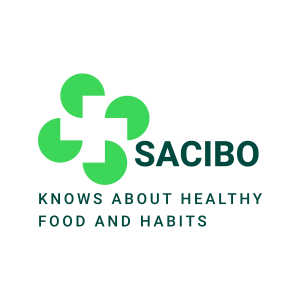





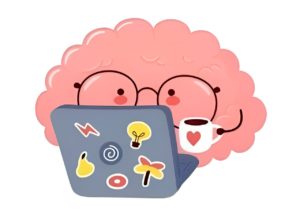

















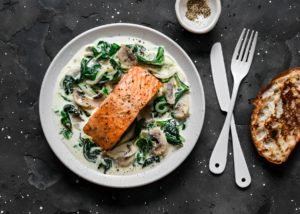






















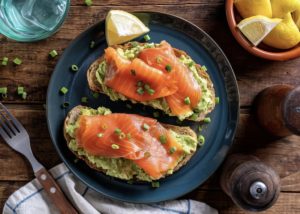



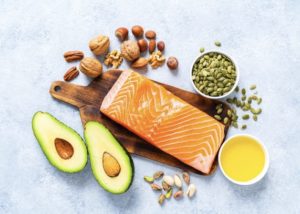












0 Comments